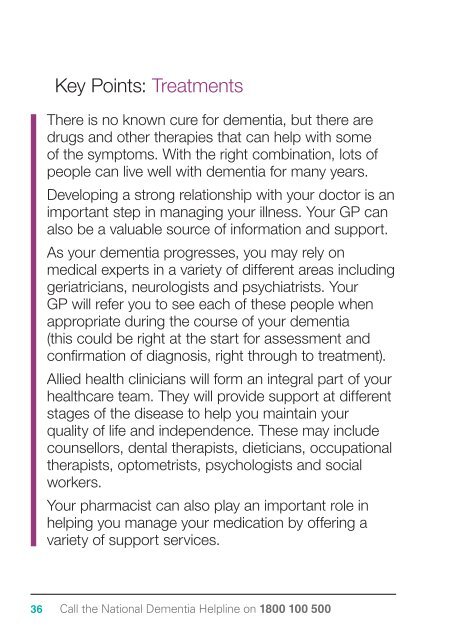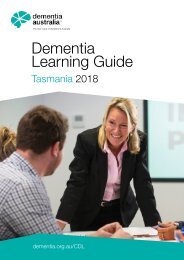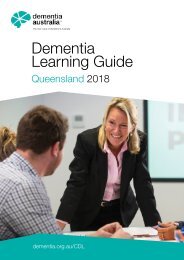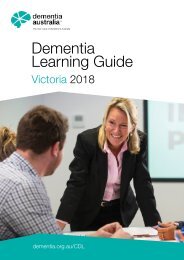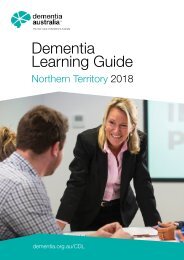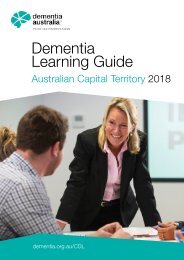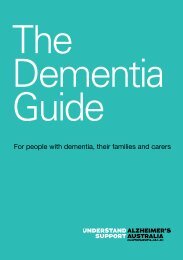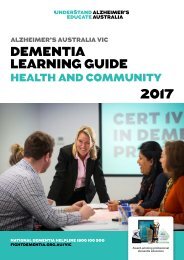Dementia Australia | The Dementia Guide
The Guide will also be used by the family and friends of someone with dementia, as it will contain information for anyone taking on a caring role. It will help people to understand more about dementia and the emotional impact of a diagnosis, the available drug treatments, and support and services that are available. It will include information about living well with dementia and about making plans for the future.
The Guide will also be used by the family and friends of someone with dementia, as it will contain information for anyone taking on a caring role. It will help people to understand more about dementia and the emotional impact of a diagnosis, the available drug treatments, and support and services that are available. It will include information about living well with dementia and about making plans for the future.
Create successful ePaper yourself
Turn your PDF publications into a flip-book with our unique Google optimized e-Paper software.
Key Points: Treatments<br />
<strong>The</strong>re is no known cure for dementia, but there are<br />
drugs and other therapies that can help with some<br />
of the symptoms. With the right combination, lots of<br />
people can live well with dementia for many years.<br />
Developing a strong relationship with your doctor is an<br />
important step in managing your illness. Your GP can<br />
also be a valuable source of information and support.<br />
As your dementia progresses, you may rely on<br />
medical experts in a variety of different areas including<br />
geriatricians, neurologists and psychiatrists. Your<br />
GP will refer you to see each of these people when<br />
appropriate during the course of your dementia<br />
(this could be right at the start for assessment and<br />
confirmation of diagnosis, right through to treatment).<br />
Allied health clinicians will form an integral part of your<br />
healthcare team. <strong>The</strong>y will provide support at different<br />
stages of the disease to help you maintain your<br />
quality of life and independence. <strong>The</strong>se may include<br />
counsellors, dental therapists, dieticians, occupational<br />
therapists, optometrists, psychologists and social<br />
workers.<br />
Your pharmacist can also play an important role in<br />
helping you manage your medication by offering a<br />
variety of support services.<br />
36 Call the National <strong>Dementia</strong> Helpline on 1800 100 500


